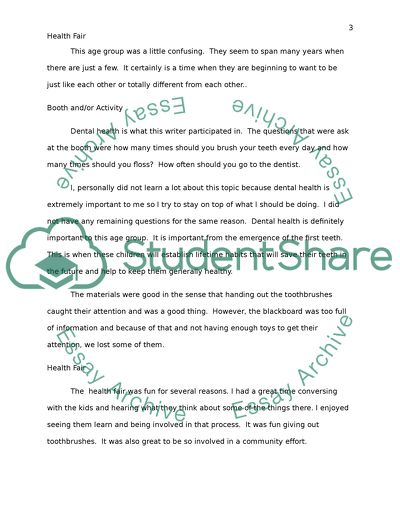
Stress is a major cause of poor health in many people. Stress can cause damage to the digestive, immune, reproductive and cardiovascular systems. If left unchecked, it can lead to a number of ailments, including depression, heart disease, and obesity. The obvious negative effects of stress can also impact a person’s sexual desire.
The autonomic nervous system, which is a part of the central nervous system, is responsible for controlling the body's response to stress. It produces different levels of hormones every day. The body makes more stress-related hormones like adrenalin or cortisol during stressful events. These hormones increase blood sugar levels and the production of fatty acids in the liver, muscles and brain. The adrenalin release causes the blood vessels in the arms, legs and feet to dilate which increases the heartbeat.
Another important factor in the effects of stress on the body is the interaction between the immune system and the hypothalamic-pituitary-adrenal (HPA) axis. The HPA axis releases cortisol (a hormone that acts like a messenger) during high-stress situations. Glucocorticoids play a key role in regulation of immune system.

A person's mood can also be affected by their gut microbiome. Changes in the microbiome of the gut can cause stress, which can have an impact on mood.
A recent study found that a healthy diet may help to reduce stress. Researchers took a group of people and measured their diets. They also asked them to fill out several questionnaires. They were also asked to complete questionnaires about self-efficacy. This measure measures an individual's belief in his or her ability to deal with challenging situations. High self-efficacy scores resulted in lower stress scores.
Stress can have an impact on the body's sodium intake, according to research. People who experienced greater stress levels had their sodium intake increase. Sodium can increase blood pressure which can lead to physiological stress reactions that are worsened.
Multiple studies have shown that stress has been linked to changes within the brain's ability to process serotonin, a neurotransmitter. Many physiological functions are controlled through serotonin.

Research also shows that stress can cause an increase in appetite. Those with higher levels of stress also tend to consume more fat and salt. This relationship has also been correlated with mental disorders such as depression and PTSD.
Relaxation techniques are beneficial not only for your health but also for helping you manage stress. Research has shown that people who take part in stress-relieving activities have higher levels of well-being. People with chronic pain may also benefit from relaxation techniques to lower muscle tension and improve their daily function.
Future research will require more global studies to examine the connection between diet, health, and other factors. Research that emphasizes a multidisciplinary approach, rigorous clinical trial methods, and a multidisciplinary approach will be essential. Future research should also investigate the effects on large communities of people who eat dietary intervention.
FAQ
What are 10 healthy behaviors?
-
Breakfast is a must every day.
-
Don't skip meals.
-
Keep a balanced diet.
-
Drink lots of water.
-
Take good care of your body.
-
Get enough sleep.
-
Stay away from junk foods.
-
Daily exercise
-
Have fun!
-
Make new friends.
How do I get enough vitamins?
The majority of your daily needs can be met through diet alone. However, if you are deficient in any particular vitamin, taking supplements can help. A multivitamin can contain all the vitamins that you need. You can also get individual vitamins at your local drugstore.
Talk to your doctor if there are any concerns about getting adequate nutrients. Dark green leafy vegetables like spinach, broccoli and kale, as well as turnip greens and mustard greens such as turnip and mustard greens and bok choy, are rich in vitamins K & E.
Ask your doctor if you're not sure how many vitamins you should take. He or she will recommend the appropriate dosage based on your medical history and current health status.
Why do we need to have a healthy lifestyle?
Healthy living can lead to a longer and happier life. A healthy lifestyle, regular exercise and good sleep habits will prevent the development of diseases such as stroke, diabetes and heart disease.
By living a healthy lifestyle, we can improve our mental health. It will make us more resilient to everyday stress. Healthy living will boost self-confidence and make you look and feel younger.
What lifestyle is most healthy?
A healthy lifestyle means eating healthy foods, exercising regularly, sleeping well, and avoiding stress. These guidelines will help you live a long, healthy life.
Small changes to your diet or exercise routine can help you start losing weight. To lose weight, you can start walking 30 minutes per day. If you're looking for a way to increase your activity, consider taking up swimming or dancing. You can also sign up for an online fitness program like Strava or Fitbit to track your activity.
Is cold a sign of a weak immune response?
Cold makes you weaker because you have less white blood cells to fight infections. Cold can also make you feel better as your brain releases endorphins, which reduce pain.
What is the difference in fat and sugar?
Fat can be a source of energy that is obtained from food. Sugar is a sweetener found in fruits, vegetables, and other foods. Both fats and sugars provide the same number of calories. Fats have twice the calories of sugars, however.
Fats are stored in the body and contribute to obesity. They can lead to cholesterol buildup in the arteries, which could cause heart attacks or strokes.
Sugars are quickly absorbed and provide instant energy. This causes blood sugar levels to rise. High blood glucose levels can lead to type II diabetes.
Statistics
- WHO recommends consuming less than 5% of total energy intake for additional health benefits. (who.int)
- In both adults and children, the intake of free sugars should be reduced to less than 10% of total energy intake. (who.int)
- This article received 11 testimonials and 86% of readers who voted found it helpful, earning it our reader-approved status. (wikihow.com)
- Extra virgin olive oil may benefit heart health, as people who consume it have a lower risk for dying from heart attacks and strokes according to some evidence (57Trusted Source (healthline.com)
External Links
How To
27 steps to live a healthy life even if your family eats only junk food
Cooking at home is the most popular way to eat healthily. However, this is often difficult because people do not know how to prepare healthy meals. This article will offer some suggestions on making healthier choices when dining out.
-
Choose restaurants that offer healthy options.
-
Order salads, vegetables and meat before placing your order.
-
Ask for sauces without added sugar.
-
Avoid fried food.
-
Grilled meats are better than fried.
-
Don't order dessert unless your really need it.
-
After dinner, make sure you have something to eat.
-
Slowly chew and eat.
-
Eat water.
-
You should not skip breakfast or lunch.
-
Fruits and vegetables are a great addition to every meal.
-
Consider drinking milk instead of soda.
-
Try to avoid sugary drinks.
-
Reduce the salt content of your diet.
-
Limit how many times you dine at fast food outlets.
-
If temptation is too strong for you, invite someone to be your friend.
-
You should not allow your children to watch too many TV programs.
-
When you are eating, keep the TV off.
-
Avoid energy drinks
-
Take regular breaks from work.
-
Get up early in the morning and exercise.
-
Move every day.
-
Start small and progress slowly.
-
Realistic goals are important.
-
Be patient.
-
Even if you don’t feel like exercising, make time for it.
-
Positive thinking is key.